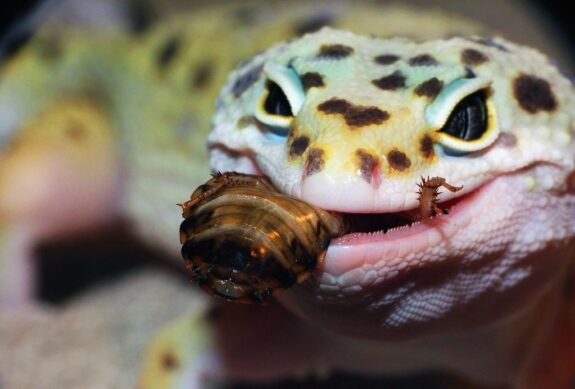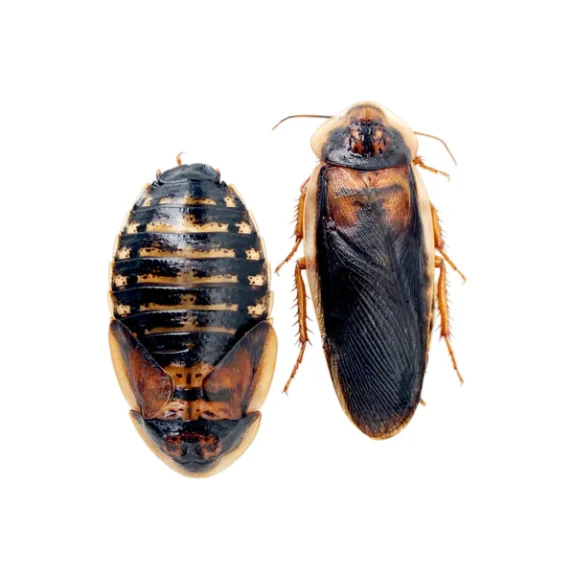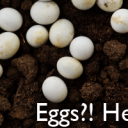A leopard gecko is going to eat different amounts at different points in it’s life. This could be because it’s a baby leopard gecko and just had its first shed. Or it could be because adult leopard geckos go through eating cycles along with the seasons of the year. Adult geckos might eat live insects but baby geckos may prefer canned wax worms or a manufactured leopard gecko’s diet. There are many many variables at play here but we will try to give you a good idea of how much your leopard gecko should eat.
Should I feed my leopard gecko everyday?
You can feed your leopard gecko every day if you wish to do so. There is nothing wrong with offering dubia roaches or similar to young leopard geckos every day. But there’s also nothing wrong with offering the same nutritional value every other day or some other schedule that is similar to the pet store where your gecko came from. Geckos can adapt to various eating schedules and no one answer is the only way to do it right. Calcium supplement should be offered weekly so don’t forget that part!

Can you overfeed Leopard Geckos?
Your leopard gecko will stop eating when it has had enough live food. Young geckos will eat quite a bit so it can be tempting to dump a lot of small invertebrates in the cage and think your juvenile leopard geckos will just eat the bugs throughout the week. Leaving uneaten live foods in the habitat can cause health issues and stress for your gecko. The amount of food to feed will need to be determined by your gecko. Do not leave extra live food in the habitat after your gecko is done eating. A good rule of thumb to find appropriately-sized insects is to get bugs that fit between your leopard gecko’s eyes. Anything larger can cause health issues like choking or impaction. A varied diet with lots of fresh water and calcium powder will make sure these popular pets stay healthy throughout their long lives.
Is my leopard gecko eating enough?
A healthy leopard gecko will have a fat and plump tail that is full of stored fats. They generally do not carry too much weight so you will not need to worry about that. A balanced diet of multivitamin powder, small crickets and a little patience will go along way. Keep track of how much and what your leopard gecko diet consists of. This record will help give you a general rule of thumb should you encounter any health problems you will want to refer to your diet records first thing.
Can leopard geckos eat dead crickets?
Yes leopard geckos can eat dead crickets but generally they do not consider this even an occasional treat. They much prefer live insects like dubia roaches, crickets, or wax worms. Even hornworms would be preferred by a juvenile leopard gecko. Crickets are a nutritious food for your gecko but they are much more nutritious when they are alive. The best foods to provide your gecko a nutritious diet will be live feeder insects, fresh water, and the proper multivitamins.

How often should I soak my leopard gecko?
A healthy shedding adult leopard gecko can be soaked anywhere from monthly to every other day. Some will prefer to soak their geckos in a shallow dish of warm clean water. Paper towels can be added for traction. This isn’t something they encounter much in their natural habitats but it is a very helpful way for us to ensure they are properly hydrated and shedding well.
A regular feeding schedule will be your best friend as a gecko keeper. Feeding on a daily basis isn’t necessarily one of the general rules for gecko keeping but it does work for some people. Gut-loaded insects and the number of insects can play a much larger role in your geckos healthy diet and healthy life. Younger leopard geckos tend to be less picky in their diet of insects but new leopard gecko owners will quickly learn what common feeder insects their animals like or dislike. Offer a variety of prey items whenever you can!


